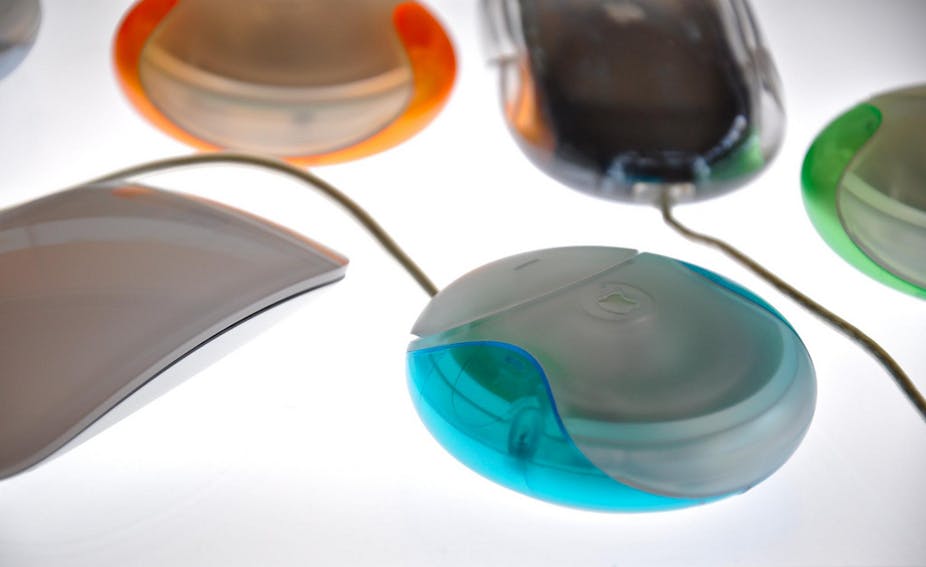It’s interesting to see the storm of pique and indignation Apple’s watch has generated. Some critics have dismissed it as nothing more than a fashion accessory.
Even the BBC, that staid bastion of technical neutrality, had two articles pushing a general disbelief that the watch – little more than an interface for the iPhone (sold separately) could provide anything useful. “Does anyone need a smartwatch?” asked Joe Miller. Rory Cellan-Jones asked: “Apple’s Watch – what’s it for?”, a question to which one commenter suggested the answer: “It’s for making tons of money for Apple from its loyal fan base… Hype over substance. They may as well say that it opens a new sub-department in its empire: the iBling!”
Does this worry Apple? Perhaps not. Similar refrains have greeted the launch of practically every new Apple product. For those of us who remember the derision poured over the transparent, lollipop-coloured iMac in 1999 – later described as “the product that saved Apple” – this sounds like history repeating itself (again).
Thanks to the internet’s long memory we can revisit Matthew Lynn’s article for Bloomberg on the launch of the iPhone: “Few products have been launched with such a blizzard of publicity as Apple Inc’s iPhone … nothing more than a luxury bauble that will appeal to a few gadget freaks. In terms of its impact on the industry, the iPhone is less relevant.”
Matthew wasn’t alone. Marketwatch said: “The ‘one-phone-fits-all’ concept is ridiculous. Apple needs to roll out many variations, or the iPhone will immediately become passe.”
My favourite was senior marketing director at Microsoft, Richard Sprague, who blogged about the launch of the iPhone with (rash) incredulity:
I can’t believe the hype being given to iPhone. I just have to wonder who will want one of these things (other than the religious faithful). People need this to be a phone, first and foremost. But with five hours of battery life? No keypad? So please mark this post and come back in two years to see the results of my prediction: I predict they will not sell anywhere near the 10m Jobs predicts for 2008.
In fact, Apple sold nearly 13m by the end of 2008 and has in the years since sold around 500m.
Given Apple’s track record, why were so many willing to pour water on the release of a potentially disruptive and hence unpredictable product? One explanation comes from cognitive science, used frequently when analysing people’s views of new technology. The concept of cognitive dissonance explains how we rationalise the world when we try to explain conflicting pieces of information.
In this case our mental model goes:
People seem to like these new things
I don’t see what the point is
I’m smart
So everyone else must be deluded/cult members/dupes
That’s not to say everything Apple makes is infallible. Apple has failures – most notably the pioneering but failed Apple Newton PDA, the Apple Bandai Pippin game console, the absurd, original circular iMac mouse, or forcing people to take a free U2 album.
So Apple isn’t especially gifted with the right to make a successful product any more than any other company. But unlike most start-ups and many companies, Apple can afford to fail and learn from its mistakes, sitting as it does on a dizzyingly large cash pile of billions of dollars.
What Apple did under Steve Jobs was to ruthlessly follow the responses of users and potential users to target and refine new products. While many tech companies like to say: “Focus on the user and all else will follow” (Google’s #1 rule), in reality it’s hard to do.
Apple’s extensive user testing isn’t magic, but it is unusual for senior management in many other firms to take the results seriously. Killing a brilliant product because the users “don’t get it” feels anathema to most managers and to engineers or developers who have spent a long time building something. “Most users are stupid” is something I’ve heard many technical people saying during user tests – perhaps that’s the idea behind the European Computer Driving Licence.
Will the Apple Watch sell? Perhaps. In the video game industry the term “gameplay” is used describe not just the aesthetics of a game but the feel of it, the experience of playing the game, how it responds and the impression it gives. Without having experienced the gameplay of Apple’s watch it’s rather like commenting on a book you haven’t read. Certainly it’s best not to go down in history like writer Joe Wilcox, who said of the iPad: “The world doesn’t need an Apple tablet or any other.”

